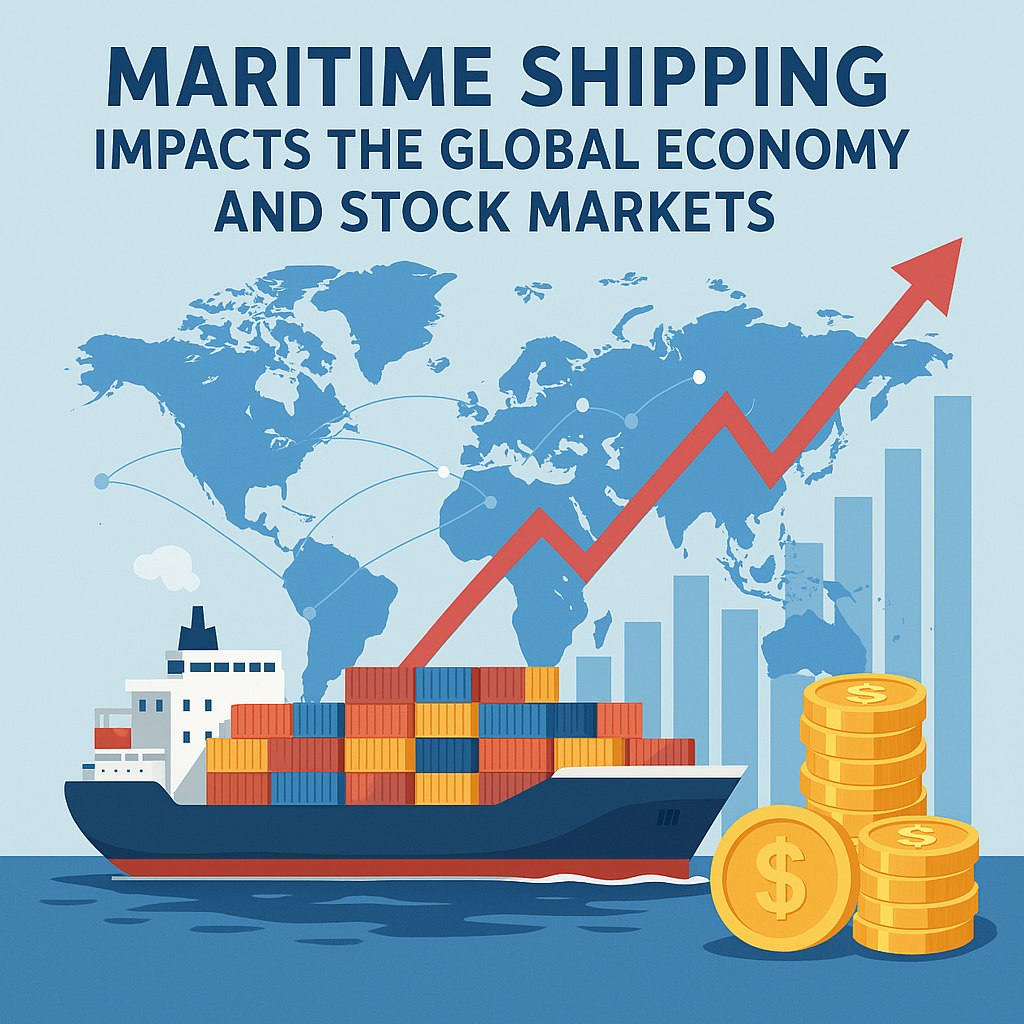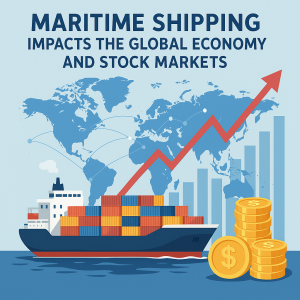Explore the pivotal role of maritime shipping in the global economy, its influence on stock markets, and the financial performance of leading maritime companies like Maersk and COSCO.
The Backbone of Global Trade
Maritime shipping is the lifeblood of international commerce, facilitating the movement of over 80% of global trade by volume. This extensive network of sea routes and ports not only underpins the global economy but also significantly influences financial markets. Companies such as A.P. Moller-Maersk and COSCO are central to this ecosystem, with their stock performance serving as a barometer for the health of global trade.
Key Concepts: Understanding Maritime Shipping and Its Economic Significance
The Scale of Maritime Trade
The maritime industry is responsible for transporting the majority of goods worldwide, making it a cornerstone of international trade. Its efficiency and cost-effectiveness enable the seamless flow of commodities, manufactured goods, and energy resources across continents. According to the International Chamber of Shipping, shipping’s ability to offer economic and efficient long-distance transport places it at the center of the world economy. ICS Shipping
Maritime Companies on Global Stock Exchanges
Leading maritime firms are publicly traded entities, with their shares listed on various global stock exchanges:
-
A.P. Moller-Maersk (Maersk): Listed on the NASDAQ Copenhagen Exchange, Maersk is a Danish conglomerate with operations spanning container shipping, logistics, and terminal services.
-
COSCO Shipping Holdings: A Chinese state-owned enterprise, COSCO is listed on the Shanghai and Hong Kong Stock Exchanges, playing a significant role in global container shipping and terminal operations.
-
Huntington Ingalls Industries (HII): An American shipbuilding company listed on the New York Stock Exchange (NYSE), specializing in the design and construction of military ships.
Applications & Examples: Maritime Shipping’s Influence on the Global Economy and Stock Markets
Economic Contributions
The maritime industry significantly contributes to the global economy through freight rates, port operations, and related services. It supports millions of jobs worldwide and is integral to the supply chains of numerous industries. The International Chamber of Shipping highlights that shipping’s economic and efficient long-distance transport capabilities place it at the center of the world economy.
Stock Market Performance
The financial health of maritime companies is closely tied to global trade dynamics:
-
Maersk: As of January 22, 2025, Maersk’s stock was trading on the NASDAQ Copenhagen Exchange, reflecting its performance in the container logistics sector.
-
Huntington Ingalls Industries (HII): Listed on the NYSE, HII’s stock performance is influenced by defense contracts and shipbuilding activities.
Fluctuations in these stocks can indicate broader economic trends, as they are sensitive to changes in trade volumes, geopolitical events, and economic policies.
Latest Trends & Future Outlook: Navigating Challenges and Embracing Innovation
Impact of Trade Policies
Recent developments, such as the implementation of tariffs by the U.S. administration, have introduced volatility into global trade. Maersk has expressed concerns that these tariffs could harm the global economy and disrupt supply chains.
Technological Advancements
The maritime industry is increasingly adopting digital technologies to enhance efficiency and reduce environmental impact. Innovations such as autonomous ships, blockchain-based logistics, and advanced data analytics are poised to transform maritime operations.
Environmental Considerations
Sustainability is becoming a focal point, with companies investing in cleaner technologies and alternative fuels to meet stringent environmental regulations and reduce carbon footprints.
Conclusion: The Integral Role of Maritime Shipping
Maritime shipping is indispensable to the global economy, with its influence extending into financial markets through publicly traded companies. Understanding the dynamics of this industry provides valuable insights into global trade patterns and economic health. As the sector navigates challenges and embraces innovations, it will continue to play a pivotal role in shaping the future of international commerce.


